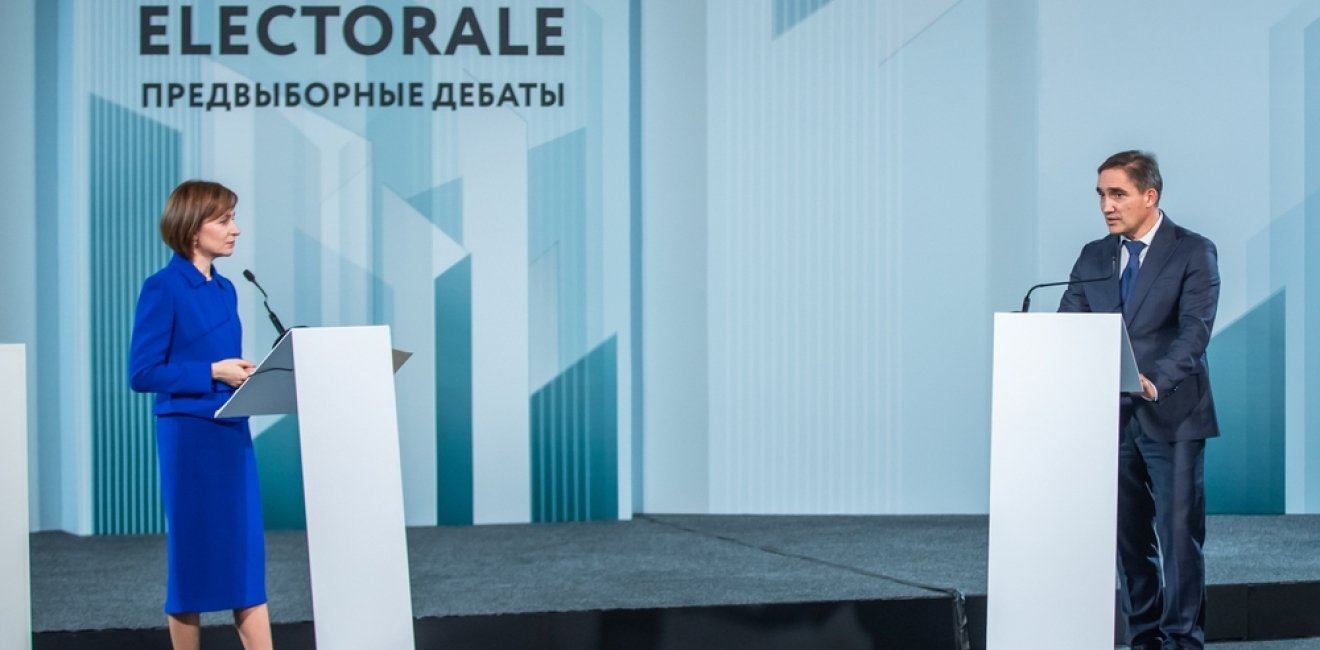November 3’s runoff presidential election in Moldova does not look good for Maia Sandu, the current pro-western president. The first round on October 20, 2024 saw a clear victory for her with 42% of the vote compared to her strongest opponent, Alexandr Stoianoglo with 26%. Stoianoglo, a former prosecutor general and member of parliament converted his pro-EU stance into a more independent, if not pro-Russian one. In the referendum which accompanied the presidential election, the slim margin of the “yes” vote for Moldova to pursue EU accession failed to provide strong legitimation for Sandu’s EU aspirations.
Moldovan voters recognize the geopolitical nature of this runoff election. The shared border with Ukraine, its active fighting against Russian aggression, and a pro-western Romania which has become an alternative source of oil and gas present viable alternatives. From close by, Moldovans observe the Russian advances into eastern Ukraine and the weariness of European and American citizens’ support for their neighbor. Ukrainian military vulnerability, and the pro-Russian results of Georgia’s election on October 26, 2024 also make Moldovans nervous.
Furthermore, considerable skepticism exists among citizens about the EU’s reliability as a geopolitical force to counter Russia. Hesitancy combined with Russian mis- and disinformation has relentlessly created internal divisions to thwart the former Soviet republic from making a definitive exit from Russian sphere of influence.
Sandu has weathered the economic fallout from COVID-19, reduced dependence on Russian gas supplies, and has sought to manage both inflation and Ukrainian refugees flowing into the country of 3 million people. She has also been vulnerable to the criticism of monopolizing the pro-EU strategy, leaving other smaller pro-western political parties outside her administration.
On the other hand, Stoianoglo has promised to renegotiate new Russian gas supplies, criticized the influx of Western leaders, and the EU’s latest aid package ahead of the presidential elections. He is also working hard to entice smaller political parties to join in opposing Sandu. Together, the opposition won approximately 850,000 votes compared to Sandu’s 650,000 in the first round of presidential elections. Not all of these parties are pro-Russian, but they express a desire for a more independent foreign policy that balances between Moscow and Brussels.
Sandu can still win if she persuades the small political parties of the economic benefits EU membership would bring and emphasizes the significant expansion of European trade flows with Moldova in recent years. She must stand resiliently against Russian inspired mis -and disinformation campaigns that meddle in Moldova’s internal affairs. This is an uphill struggle, but one that Washington should support.
Author


Global Europe Program
The Global Europe Program is focused on Europe’s capabilities, and how it engages on critical global issues. We investigate European approaches to critical global issues. We examine Europe’s relations with Russia and Eurasia, China and the Indo-Pacific, the Middle East and Africa. Our initiatives include “Ukraine in Europe”—an examination of what it will take to make Ukraine’s European future a reality. But we also examine the role of NATO, the European Union and the OSCE, Europe’s energy security, transatlantic trade disputes, and challenges to democracy. The Global Europe Program’s staff, scholars-in-residence, and Global Fellows participate in seminars, policy study groups, and international conferences to provide analytical recommendations to policy makers and the media. Read more

Explore More
Browse Insights & Analysis
Greenland’s New Governing Coalition Signals Consensus

Myanmar’s Junta and the 2026 Elections: A Fig Leaf for Legitimacy?




